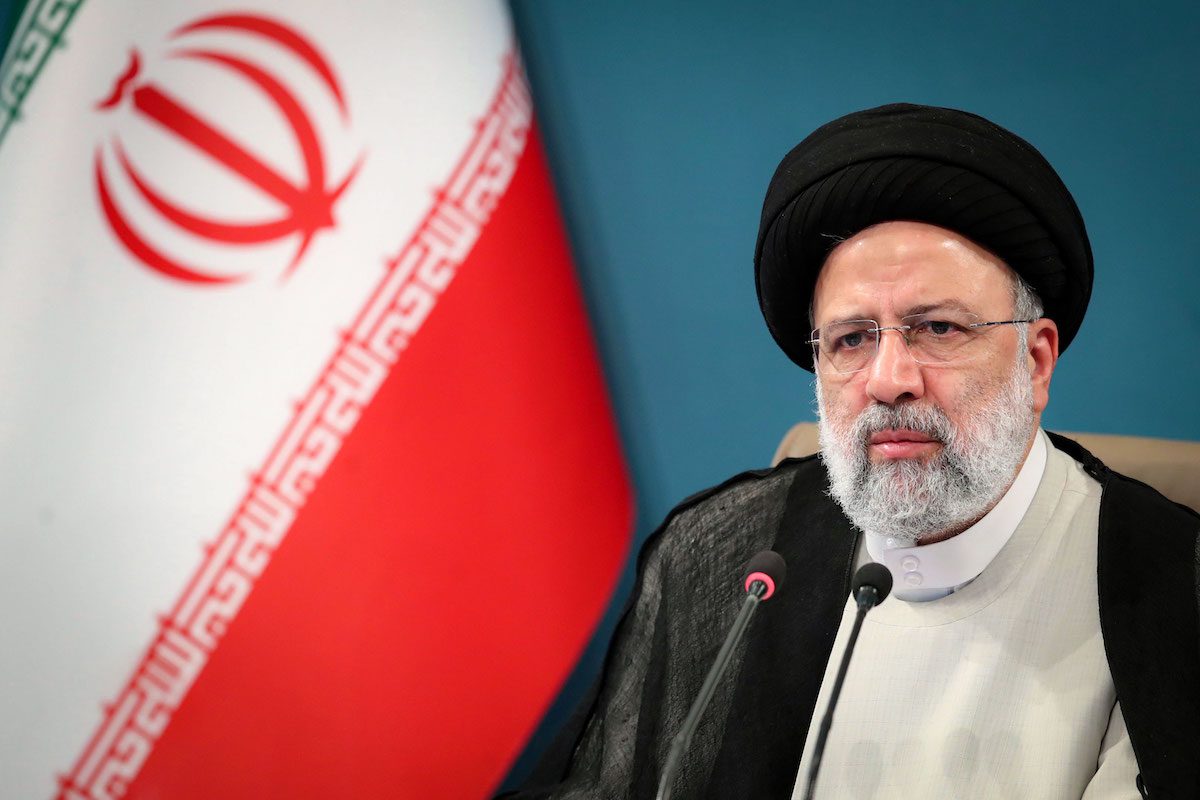

A long-term negotiated deal that its content was written with great care and sensitivity is again drown into a serious dispute.
The Iran nuclear deal confirmed in 2015 is grappled in a quagmire of operation, re-articulation, and how to be revived. All parties to the deal set out reasons to gain support for their terms and conditions in which stand against the others’ criteria.
Negotiations over Iran’s nuclear program that led to the Joint Comprehensive Plan of Action (JCPOA) in July 2015 started in 2003.
In the twelve-year timeframe, enough endeavors were made to take out a minimum precious deal that could turn all sides’ least demands into a reality. However, now it is on the edge of a full collapse.
Despite several players involved in the accord, Iran and the U.S. are key ones as their determination that led to victory of diplomacy over conflicts in the last decade. The glory of diplomatic activities abruptly twisted into a deadlock. Withdrawing from the deal and imposing maximum pressure on Iran was backfired by decreasing nuclear commitments, and these threatening adventures are still flip-flopping.
Parties to the accord did all their best to strike the 2015 deal but ceasing the current conflictual situation that might drag it into full collapse, several principal factors should be reminded to all parties.
1) Parties to the deal came to realize that the JCPOA is a cornerstone for a durable mutual trust. And the sustainability of mutual trust at this phase ultimately depends on the deal as a tester as well as an opportunity to partially overcome misperceptions, misunderstandings and mistrusts.
2) Excessive conservatism in taking steps forward is equal to squandering time and short-term views are not in the interest of the parties.
3) States that articulated the content of the JCPOA are fully familiar with the antagonism of some regional countries in West Asia and beyond that have been making a lot of efforts to completely kill the agreement. If multilateral cooperation makes a setback for antagonism, it will set a dangerous precedent, poisoning multilateralism.
4) Parties to the deal wished favorable results and found their aims or goals in the deal. A full monitoring of Iran’s nuclear activities as well as lifting sanctions was the major goal of the deal.
5) All stakeholders, especially Iran and the U.S., withstood critics and spent a lot of precious time through negotiation and keeping talks continue. Now, the same major players need to unravel the current knot as Iran should get rid of sanctions and the new U.S. administration should revive its prestige; both are accessible through a sensible solution.
6) All stakeholders comprehend that staying out of the deal entails more costs than keeping the deal on its track. Withdrawing from the deal at least deprives them of regular trade and at worst, precipitates mistrust in the mentalities as a hinder to future plausible talks.
7) Parties to the deal found that Donald Trump’s withdrawal from the multilateral agreement has irritated all sides. It was neither based on an analytical decision nor brought any privilege to the U.S. The decision, as a stigma, tarnished the U.S. image and the remaining parties were put into trouble.
8) All sides comprehend that the deal is at the brink of full collapse. When it’s heard that “the window is not open forever” it means time is flying. No single second returns.
9) Right now, there is somehow one X in the equation*** of the deal that gives a hint: who should take the first step. As Iran is nearing the June presidential election, Xs would be become more and more.
10) The more time spent to fully operate the deal, the harsher condition will come before it.
Preserving common achievements pave the way for a constructive situation in which leads parties to a result-oriented path, but insisting on common achievements is still imperfect. Parties to the deal should be more committed to constructive criteria and standards. Along with the aforementioned reminders that are conducive to a better way, some negative points should be refrained.
Those points that should be refrained are enumerated as follows:
1. The easiest and most accessible way is to refrain from harsh rhetoric, at least for a short time span. Official positions are the main data and signals which shape plans and analyses that subsequently steer policies.
2. Parties to the deal should refrain from making the situation more complex by adding new issues to the nuclear deal talks. Pursuing further concessions or putting more issues on the negotiation table means taking steps backward. Excessive demands will sound the alarm for the failure of diplomacy.
3. Negotiation is a tool to find a way. So, it is a forward-looking approach. Bitter backgrounds, especially those rooted in their common history, should be forgotten.
4. Parties should keep in mind their consideration and dismiss third-parties’ criteria, concerns, and considerations. If more direct or indirect chairs added to the negotiation table, the more stumbling blocks will emerge.
5. Reviving the nuclear deal needs to focus merely on the nuclear deal. In other words, the expectation of stakeholders should be confined to the original deal. Negotiations for reaching the nuclear deal lasted 12 years. Adding new agenda will make negotiation an open-ended process.
6. Politics is about finding a rational way to overcome problems. Public humanoid senses should be avoided and being a stubborn player has nothing to do with politics.
7. The nuclear talks were launched due to an artificial accusation by an anti-Iran faction. An accusation that has never been proven. Such terrible scenarios are intended to make another artificial accusation against Iran, a dangerous plot that might trap the West.
8. At the first step a fair deal is the one that includes all parties’ benefits. And the second step should not harm other parties. Full operation of the deal can create a better West Asia. However, ambiguity pushes the region toward a wrong path.
9. The zero-sum game should be relinquished, and a win-win status, as a solid bottom for a long-term agreement, should be taken into account.
10. Materializing full demands overnight is just an illusion. Mediators including Qatar, Oman, and the EU should be given more foster positions. Two crucial parties, including Iran and the U.S., should allow mediators to be more active and creative. The “Oman talks” as a backdrop communication place was a successful experience for both sides. Simultaneously, mediators should be facilitators and refrain from any orientation and manipulation.
Related posts:
Views: 0
 RSS Feed
RSS Feed

















 April 20th, 2021
April 20th, 2021  Awake Goy
Awake Goy 





 Posted in
Posted in  Tags:
Tags: 
















